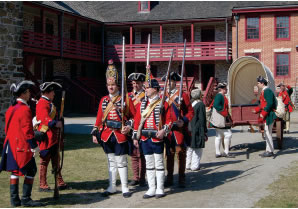What Trenton Makes, The Kids Take.

While some New Jersey public schools sing praise about the history to being taught to students, a large chunk of what makes Trenton well-known has been amiss from classrooms. Local music continues to be overlooked and underutilized by the public school system— but not without reason.
Due to recent state mandated PARCC exams, music classes are being taken out of the spotlight in order to prepare their students for the upcoming exam. According to njspotlight.com, “one in five N.J. schools doesn’t offer both music and visual arts, as required by the state.”
Without music classes, it has become harder to integrate local musicians into regular classroom curriculum. However, there are still a few schools who hit a high note with the city of Trenton.
Pierrepont and Union Middle Schools of Rutherford, N.J. are just two of many who take an annual field trip to Trenton, New Jersey with their wide eyed fourth grader students.
“The process involved the year of study that we did,” said Margaret MacFadyen-Doty, a seventh grade teacher, previously fourth grade teacher, at Pierrepont School. “We covered the Revolutionary War and the battles fought in N.J. and their significance to the outcome of the war. This is where the visit to the Old Barracks came in!”
The Old Barracks museum, found in the heart of Trenton, offers children the experience of living during Revolutionary War times. The students of Pierrepont and Union school became immersed into old practices of some doctors, the process of shooting a gun, and the instruments some soldiers played during battles.
“I still remember it!” Said Emily Laskey, 18, a college student who experienced the trip to Trenton in fourth grade. “We saw all the colonial-looking people and I remember being so surprised and intrigued.”
This museum also offers a summer program solely focused on the music of that time period, but for a group of about one-hundred fourth graders, the brief introduction to the music was all they were allotted.
“They were really focusing on the hardships those people went through,” said Laskey. “Music then and even now is for celebratory purposes, so maybe they didn’t deem it important.”
Back in the classroom, students began experiencing lesson plans that coincided with one another. While reading the “Red Wheelbarrow” by William Carlos Williams, students would create simplistic drawings based on the poem. While learning about the Great Depression in history class, students would read a book about the struggles farmers faced.
While learning about the Battle of Trenton, the musical focus for the students was instead placed on famous state musicians instead of Trenton’s musicians.
“I’m sure that if there were some more famous musicians I’d have try to touch on it in some way,” said Constance Defazio, the music teacher at Pierrepont School. “I did a fourth grade sing-along some years ago. We sang ‘High Hopes’ by Sinatra, ‘Who says you can’t go home?’ by Bon Jovi, among others.”
When asked about whether students should learn about Trenton musicians along with Trenton history, some were hesitant.
“At that age, I believe the exposure is what’s important,” said Defazio. “It’s important to know about these musicians but it really depends on the kind of music they do and how appropriate that is for a specific grade. The Four Seasons came from Newark, but I don’t think fourth graders would enjoy that type and style of music.”
However, Principal Joan Carrion reassures us that music is and always has been important to her and the school system.
“There is 100% a correlation between education and music,” said Carrion. “Studies have proven music is a huge factor in both social and mental development. Anecdotally, I have seen kids who are struggling in classes or struggling to make friends really connect with their peers through music.”
“Before I was in choir, I really struggled to find a sense of community among people who really cared about each other and were passionate about something. After I joined middle school choir and transitioned into high school choir, I found a lifelong love for music that has shaped me into the person I am today.” said Laskey, with a smile. “Music classes give us a way for us to create something beautiful as an entity, and to work together with harmonies to make beautiful euphonies.”

